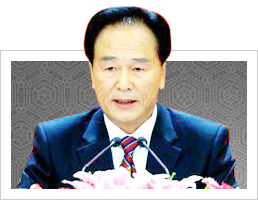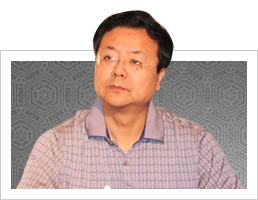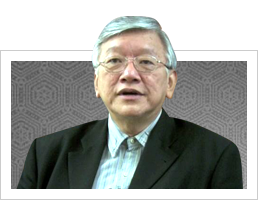The Chinese dream and peaceful development

The author is Vice Chairman of the Board of Trustees CSIS Foundation.
China is aware that these reforms will reap external reactions but it expects more positive than negative ones. China had done two things. First, it agreed with the U.S to lay down a new basis for a major powers’ relationship: mutual respect; non-intervention in each country’s domestic issues, and cooperation based on a win-win principle. The new rules between the big powers hopefully will reduce tensions and prevent misunderstanding.
Secondly, it agreed that there is a need for China to rise or develop peacefully, and that China should be able to create a community of interest between China and other countries, especially with her close neighbors.
Currently, war is no more an alternative, with the existence of nuclear weapons, while confrontations like in the Cold War do not help global economic cooperation since it is still in a precarious situation in the medium term. Thus, the only positive alternative is to create a community of interest.
China's relations with ASEAN or Southeast Asia, whose member countries are considered as its closest neighbors, is among others defined by the problems arising from the South China Sea disputes. How China is going to create a common interest with ASEAN on the South China Sea issue is very critical. That is why we now agreed to establish CBMs through two efforts: the implementation of the Declaration of Conduct (DoC) for fisheries, environment, resources, and joint-development, and the formulation of a Code of Conduct (CoC) to create a regional order to prevent conflict or manage it when conflict arises. It is not to solve the sovereignty problems between the claimants, which is theirs to solve bilaterally in the longer term. This cooperation consist of three layers, between governments (ASEAN + China), between 1.5 track efforts by forming an Eminent Persons and Experts Group (EPEG), and among think tanks. This is the way how we build an ASEAN-China common interest on the most important issue between the two.
The most difficult issue in the region now is the the relationship between China and Japan regarding overlapping claims on the Diaoyu, or Senkaku, islands group. The problem is residual from World War II, and the historical part of the issues is complicated. That is why PM Abe’s revisionist statement on World War II and its impact does not help. Second is on the role of the US, which is not conducive to involving herself in the dispute between China and Japan despite her defense treaty with Japan.
Third, Deng Xiaoping was right when he argued about postponing the resolution of the claims, and going for a joint-development. But so much water has gone under the bridge, which begs the question as to whether going back to his wisdom is no longer possible.
What the region can do is to advise caution and restraint to both sides, because so much is at stake for East Asia's stability and the development of tensions and conflict can flare up due to policies on both sides. For both sides there is the need to immediately create direct contact and a mechanism to prevent misunderstanding, especially among the military.
Connotations of Chinese Dream
Inspired by the Chinese Dream, more and more people have begun to chase their own dreams, including dreams to receive better education, start businesses, purchase homes and get rich. People firmly believe that as long as they work hard, their dreams would come true. [more]
Chinese dream and China's governance
A great deal will depend on how Xi Jinping will actually implement the core features of the program he has laid out and how he will seek to create incentives and constituencies to support his programmatic goals.In sum, President Xi has now made very clear where he stands and where he wants the country to go under his leadership, and he has achieved wide-ranging endorsement of this overall program. [more]
Chinese Dream includes strong PLA
The PLA as a pillar of State security follows the trend of the times and follows a principle that is different from colonial aggression and expansion. And China firmly believes in the principles of peace, cooperation and development of military ties with other countries. [more]
The Chinese dream and peaceful development
The most difficult issue in the region now is the the relationship between China and Japan regarding overlapping claims on the Diaoyu, or Senkaku, islands group. The problem is residual from World War II, and the historical part of the issues is complicated. That is why Japan PM Abe’s revisionist statement on World War II and its impact does not help. [more]
The year of Chinese Dream
Distinct from the American Dream, the Chinese Dream cannot be a narrative of pure newness. It is the imagining of a better future with the memory of 4,000 years of history, a movement of renaissance expressed in the vision of "civilizational China". [more]
Defeat challenges, realize Chinese Dream
High economic growth in recent decades may have made China more confident of realizing the Chinese Dream, but the country's new leaders face serious challenges that could hamper their efforts to realize the goal.First and foremost is the need to fight widespread corruption. Making this his main priority, President Xi warned that corruption could lead to "the collapse of the Party and the downfall of the State". [more]
World dialogue on the Chinese Dream
The “Personal Chinese Dream” focuses on the well-being of individual Chinese citizens and thus modifies traditional notions of the primacy of the collective over the individual. The dream of the Personal is balanced with the dream of the National. In fact, the fulfillment of The Personal Chinese Dream constitutes a good part of what it means to fulfill the National Chinese Dream. [more]
Making a nation's dream come true
Promoting Chinese concepts in the rest of the world is not very difficult - stop translating key Chinese terminologies (at best, give the appropriate or closest meaning and continue with the Chinese terminology). If kung fu, wushu, rujia, shengren, junzi can be understood and accepted by the outside, why not zhongguo meng? Once you translate a Chinese term you give away the definition of thought. [more]












